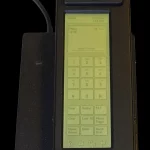Chances are, you’ve got a printer in your home or office. And while we take this technology for granted nowadays, it’s important to remember that the first printers were anything but common. In fact, the history of the printer is a long and fascinating one, filled with innovation and ambition. So, without further ado, let’s take a look at the very first printer.
Table of Contents
The First Printer: Gutenberg’s Press
The first printer was invented by Johannes Gutenberg around 1440. His invention, known as the printing press, allowed for mass production of printed materials for the first time in history. This had a profound impact on society, making information more accessible than ever before and sparking a true Renaissance of learning.
Gutenberg’s press used movable type—individual letters that could be arranged to form words and sentences—and it could produce up to 180 pages per hour. This was an incredible feat of engineering for its time, and it allowed for mass-produced books and other printed materials for the first time ever.
What was the First Book Ever Printed on the Printing Press?
Johannes Gutenberg revolutionized the world in 1452 when he successfully printed an entire Bible – believed to be the first book ever produced with a printing press. More than just a feat of engineering, creating 180 copies of the 1,300-page publication was no small task; some were even printed on vellum.
Astonishingly, every page featured 42 lines of Gothic text in two columns with unique touches such as letters printed in color. Gutenberg’s innovation paved the way for the mass production and distribution of books, ultimately changing the course of history by ensuring people had easier access to knowledge and literature.
Of course, movable type had been invented centuries earlier in China—but Gutenberg’s development of a reliable printing press made it possible to mass-produce printed materials on a large scale. This had an immense impact on society and culture, making knowledge more widely available than ever before.





